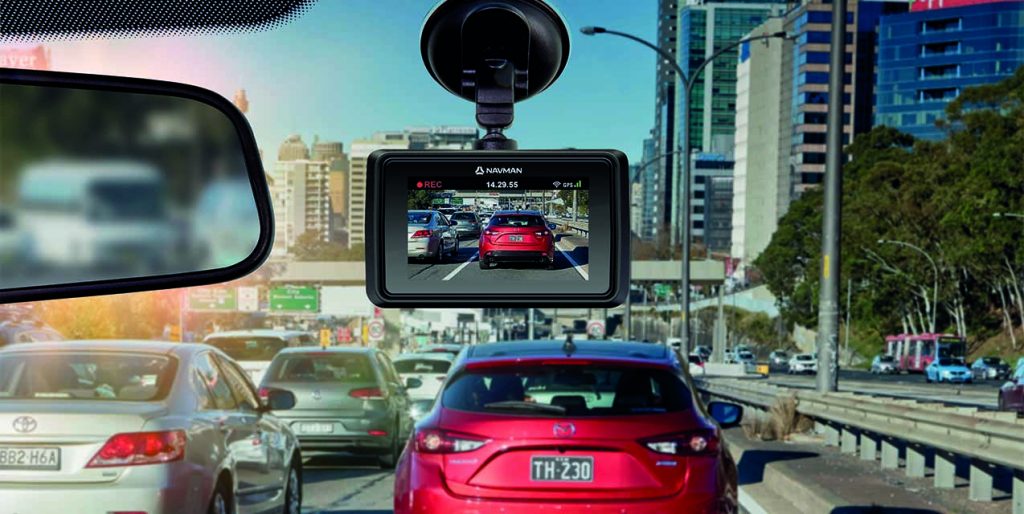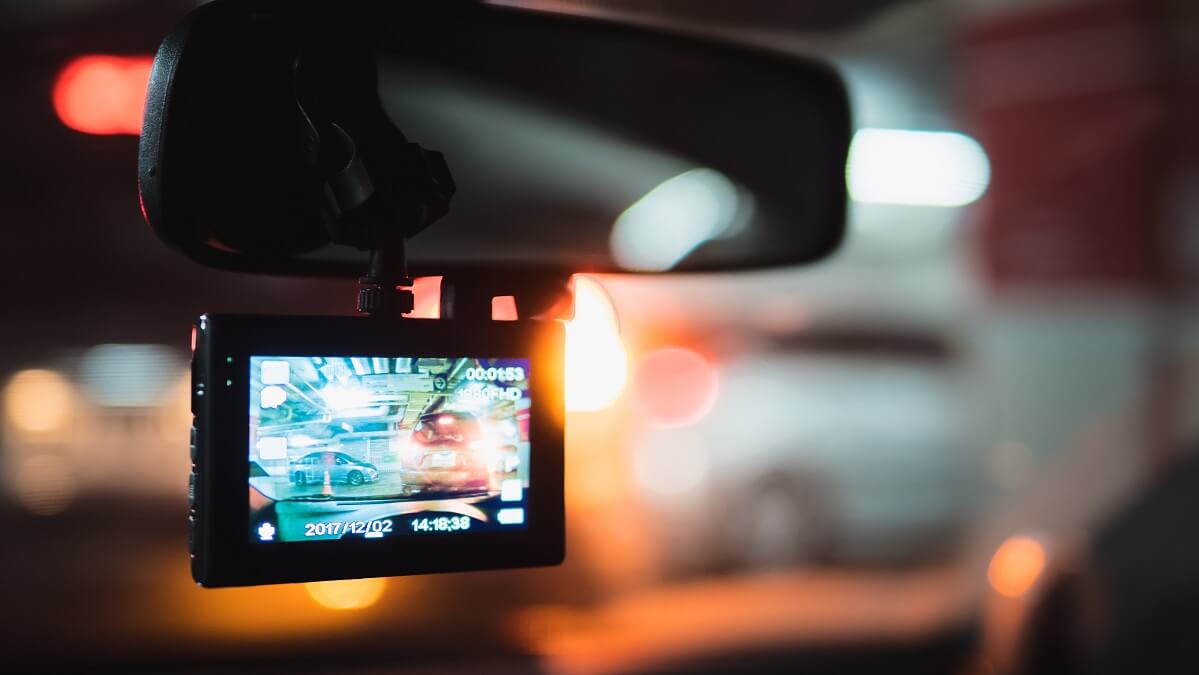Quite apart from their potential to make a significant contribution to road safety, dash cams have provided hilarious footage to television shows highlighting the stupidity of other drivers. (Most notably, it seems, in Russia!)
The good news is that they are much cheaper, smaller, easier to use and offer many features that early examples didn’t.
Dash cams offer safety and security for many drivers. They have been popular in the commercial sectors for fleets of vans and trucks, along with emergency vehicles, for a number of years. But as with most new technology, early examples were too expensive for most everyday motorists.
A surge in popularity and big steps in technology led to a price drop, and a reduction in size, so they are now affordable for most. Properly positioned, they won’t restrict visibility and they are readily available online and in car accessory shops, with prices starting at well under $100.
While overall standards of driving and safety in Australia are higher than in many other countries, collisions are still an all-too-common occurrence, and one driver’s account of what happened is likely to differ from another’s.
Too often, a driver at fault will deny his/her responsibility and it often comes down to your word against someone else’s. Dash cams often provide clear and irrefutable information. In fact, after a collision, simply waving your dash cam at the offending driver can bring about a complete change of attitude and even admission of liability.
Of course, if it was you in the wrong, your dash cam footage may put you in the position of having to admit that you were at fault!
Dash cams can help you protect your no-claims bonus, guard against dangerous drivers and road rage incidents, even protect you from crash-for-cash scams and people damaging your car in a car park and then driving away without leaving their details.

What is a dash cam?
A dash cam is a video camera that is mounted on the dashboard or windscreen of a car. Generally powered by the car’s 12v system, it continuously records the view of the road and traffic through the windscreen.
How does it store footage?
Typically, a dash cam continuously records video footage either on an internal memory or a removable card (such as an SD card). When the memory fills, the camera automatically overwrites the oldest files. So you should be able to set it up then leave it until you need it. Occasionally, in our experience, you may find an SD card that isn’t compatible with your dash cam, but that is rare.
Do you have to tell others that you’re using a dash cam?
Recording people without advising them that you are doing so is a bit of a grey area. However, if you own the car (or other vehicle) it is legal to use a dash cam without notifying anyone else that you’re recording. But you are not allowed to distribute any footage of acts that somebody would reasonably expect to be kept private.
We have heard stories of police officers requesting that a dash cam be switched off when they have pulled over an offending driver, but since most police officers now wear body cams, that probably isn’t much of an issue. The police are empowered to seize your dash cam if they believe it contains evidence they require to secure a conviction and suspect the footage may be deleted.
How many are in use?
Some estimates suggest that as many as one in five vehicles now use a dash cam.
Where’s the best place to fit it?
Fit your dash cam in the centre of your windscreen, behind the rear view mirror. Ensure it does not obstruct your forward vision. If you are fitting it and won’t be moving it from vehicle to vehicle, you can hide the wires behind interior trim for a neater appearance. Having someone else install your dash cam for you will typically cost between $100 and $160. Dash cams can become a distraction, so resist the temptation to fiddle with it when driving.
What are the advantages of a dash cam?
As fraudulent insurance claims increase, a dash cam provides vital evidence of what actually happened and who may have been involved. Following a collision or incident on the road, a driver’s memory of events or the position and action of other motorists can sometimes be unclear, while a dishonest motorist may be less likely to pursue a claim knowing that video evidence is available.
Can you save on car insurance?
We haven’t heard of any Australian insurance companies offering discounts to drivers of cars fitted with dash cams. However, overseas, the installation of a dash cam could see a discount of 10 per cent, or even as much as 25 per cent, from some insurance companies.
One of the issues is that a dash cam can be turned off, or the recorded footage deleted, so reluctance by insurers to offer discounts is understandable. In Australia, we would suggest at least asking the question. By the way, you don’t have to tell your insurer you’re using a dash cam, as it is not considered a vehicle modification.
Can you share my footage with the police?
Yes. We had one reader whose car was damaged by a car parked adjacent in a car park while he was away from it. When he returned and saw the damage, he retrieved the dash cam footage and reported the incident to the police. They uploaded the footage and were able to identify the two cars parked adjacent to his, inspect the vehicles for correlated damage and interview the owners.
Modern dash cams have the ability to continue recording when the vehicle is switched off, invaluable if your vehicle is damaged while parked. You can also share dash cam footage showing dangerous driving, hoon driving, driving without due care and attention, using a mobile phone, not wearing a seatbelt, ignoring a red light or stop sign and any number of other dangerous driving behaviours.
Would you need to go to court?
You can report dangerous driving in most states by phone, but dash cam footage of the incident makes a far stronger case. Police will upload your footage, and ask you for details of the time, date and location. Dash cams connected to GPS will have recorded this information for you. In most cases, if you report bad driving behaviour, you won’t be obliged to appear in court, but there is the possibility that you will be called to give evidence.
Could the footage recorded on you dash cam be used against you?
Yes. If you’re involved in a collision, or are stopped by the police for committing an offence, then officers could seize your dash cam or could require you to present its footage for them to review.
And a final word of advice: however helpful a dash cam may be in the case of an incident, collision or crash, driving with care, consideration and concentration is every driver’s responsibility. If every driver upheld these principles, our roads would be a safer place.
Originally published on www.seniordriveraus.com and republished here with permission.
Do you have a dash cam? Would you ever consider getting one? Let us know in the comments section below.
Also read: How to hear what your car is telling you

